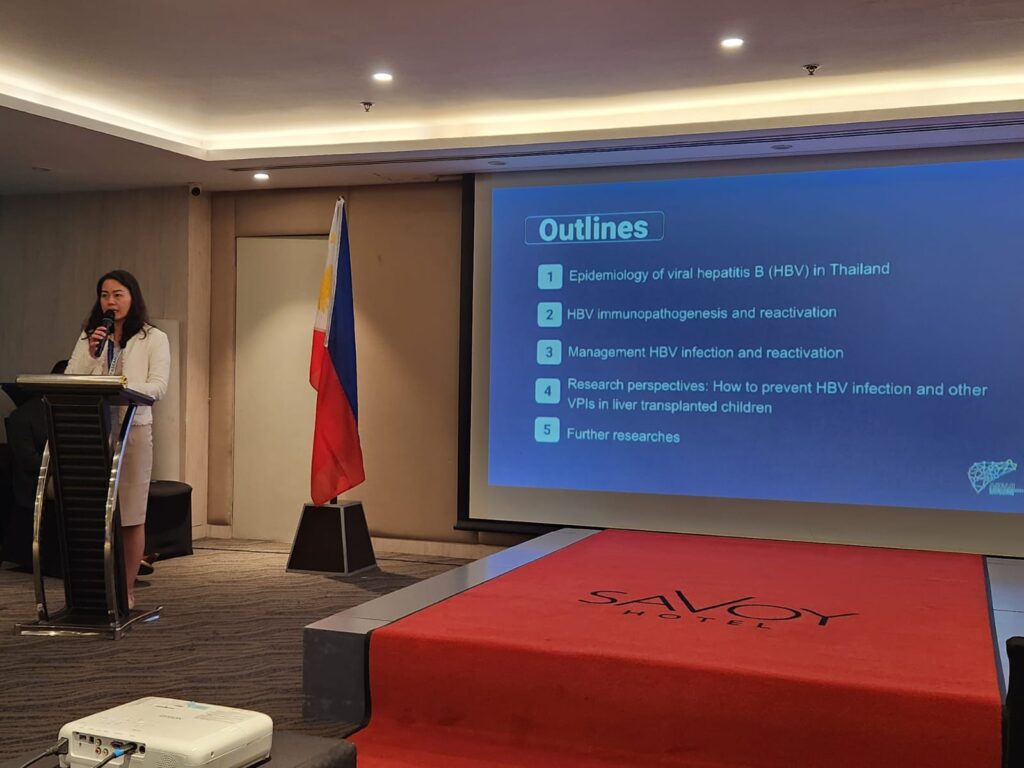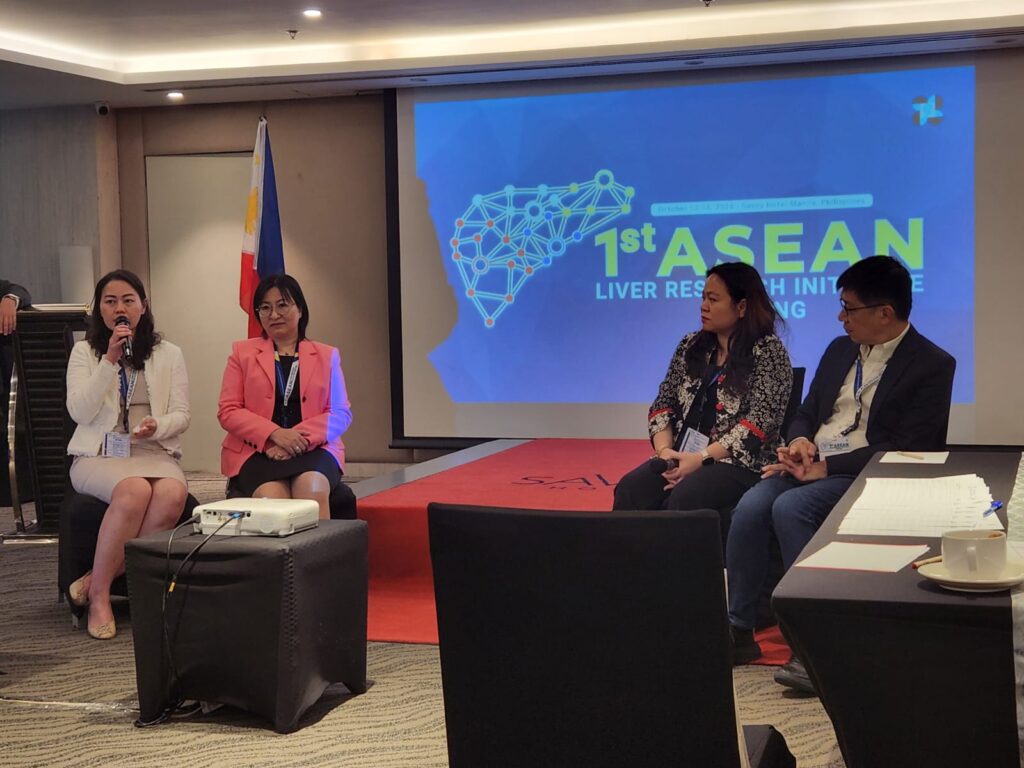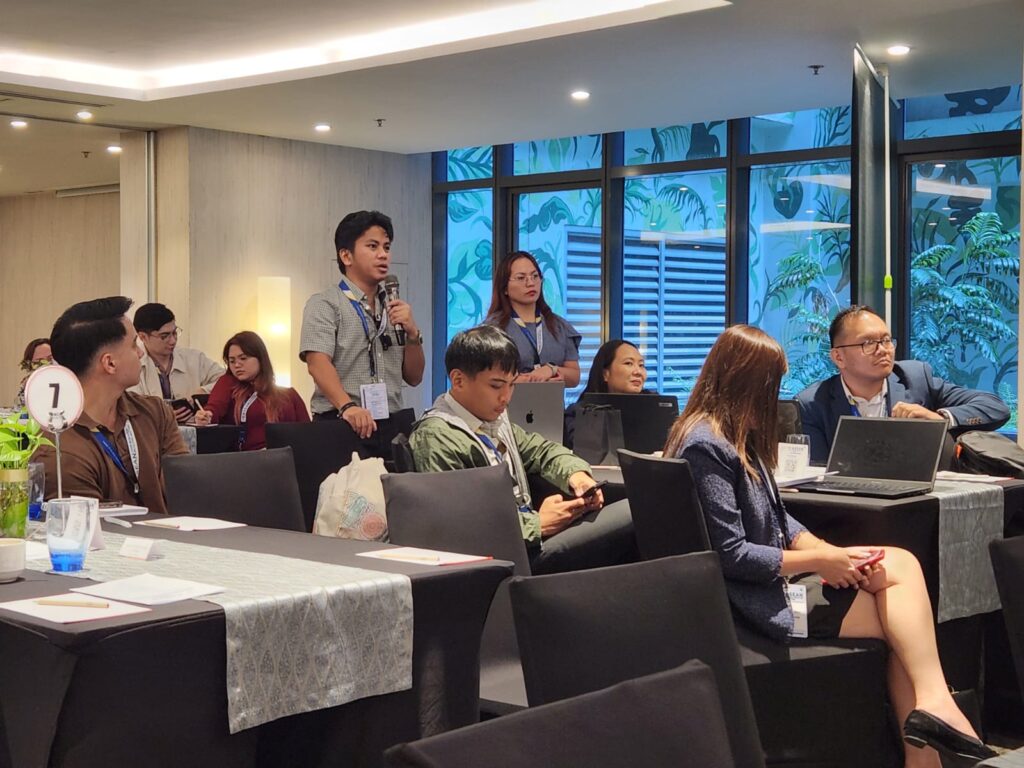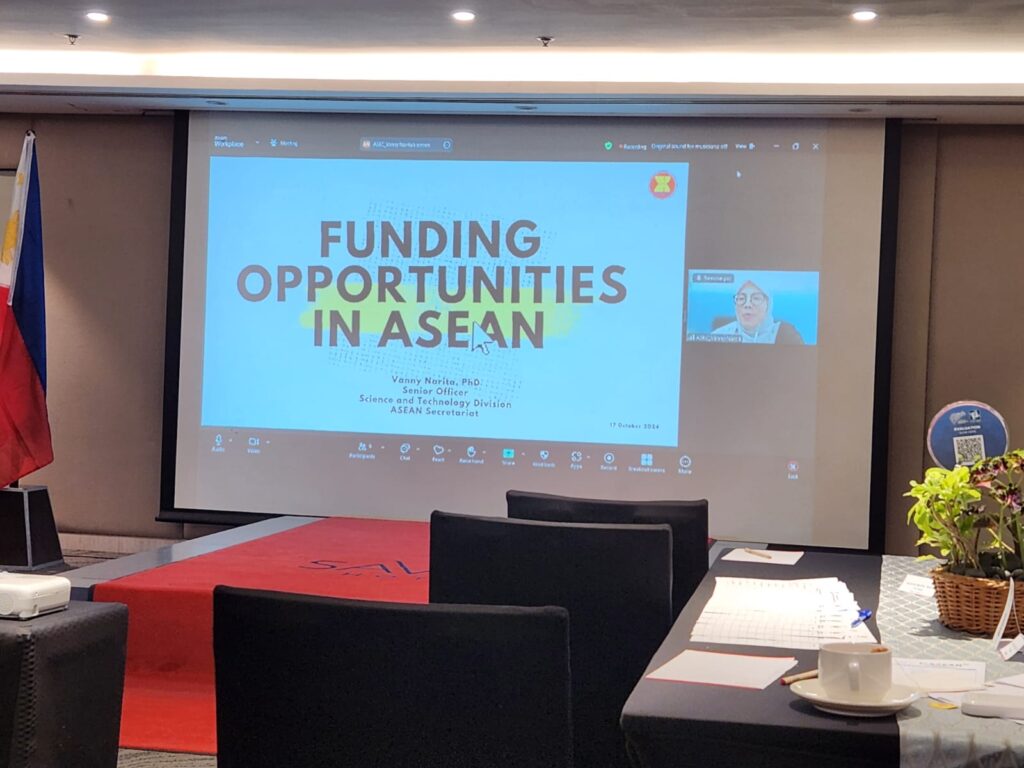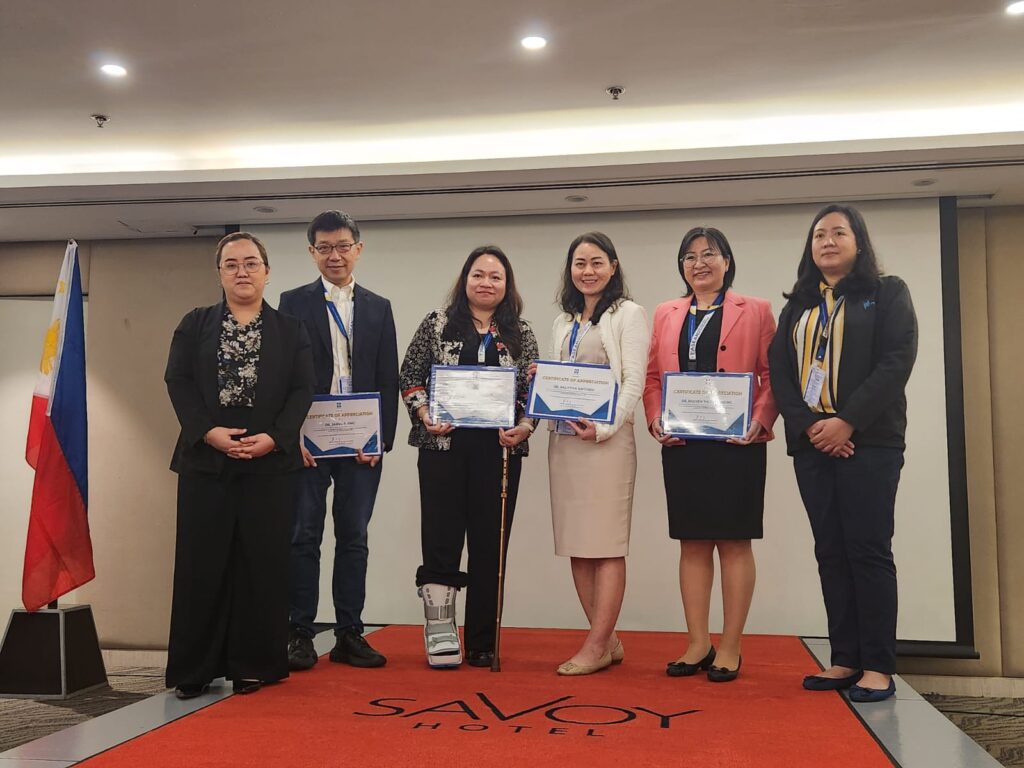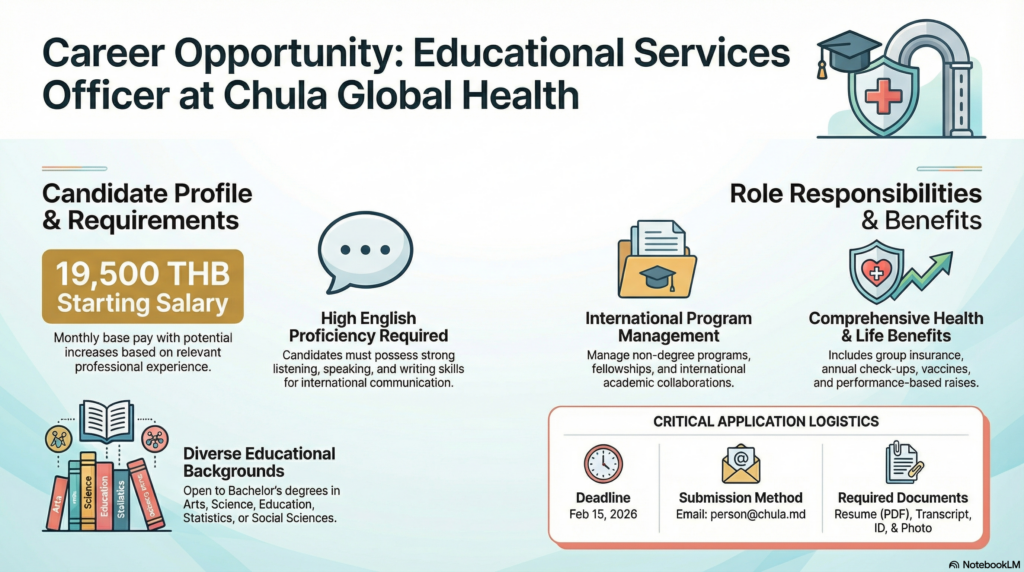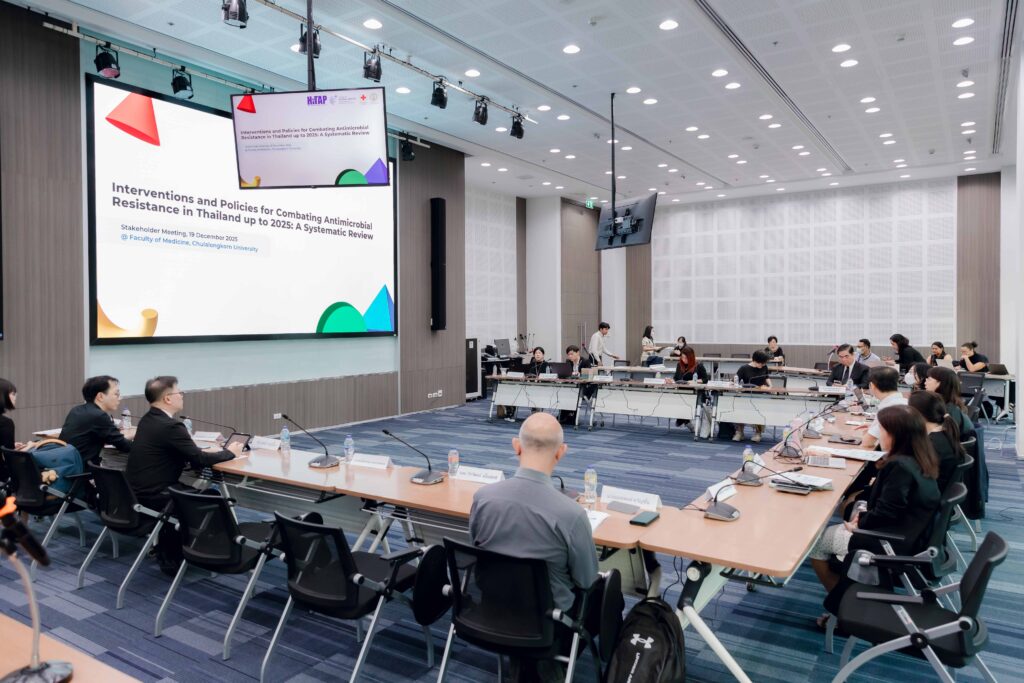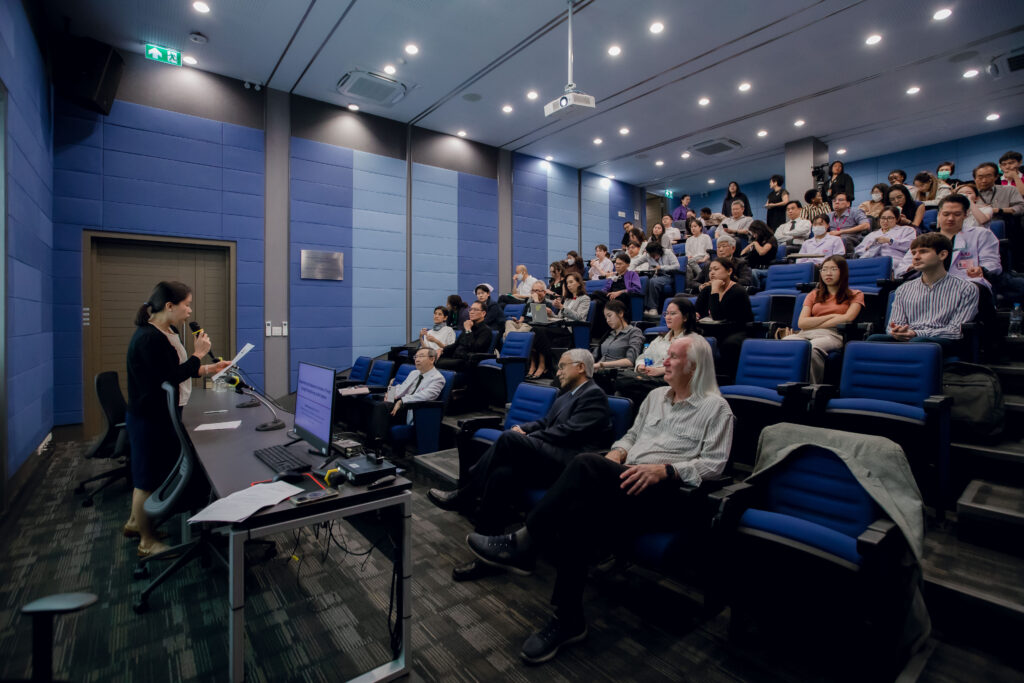ASEAN Liver Research Initiative (ALRI) Kick-off Meeting in Manila: Driving Collaborative Liver Health Research in The Region
Manila, October 18, 2024 – The ASEAN Liver Research Initiative (ALRI) held its inaugural meeting in Manila, bringing together experts from across the region to advance liver disease research and foster collaborative efforts, hosted by The Philippine Council for Health Research and Development (PCHRD), one of the three sectoral councils of the Department of Science and Technology (DOST). This meeting aligns with ALRI’s broader mission to address the growing burden of liver diseases in Southeast Asia by focusing on data sharing, capacity building, and innovations in diagnostics and treatment.
Also to be in line with the ASEAN Network for Drugs, Diagnostics, Vaccines, and Traditional Medicines Innovation (ASEAN-NDI) framework, the event emphasized research priorities, shared challenges, and regional funding opportunities, aiming to enhance the region’s collective response to liver health challenges.
At the meeting, the School of Global Health, Faculty of Medicine, Chulalongkorn University was represented by Assoc. Prof. Palittiya Sintusek, MD, PhD, from the Department of Pediatrics. She presented on Viral Hepatitis B and shared research findings on the prevention of HBV infections among liver-transplanted children in Thailand.
In the Global Young Researcher section, Dr. Bumi Herman from the School of Global Health discussed the importance of collecting high-quality data to improve machine learning predictors. He also emphasized the need to identify risk factors for liver diseases and promote evidence-based evaluation of liver-related policies using clinical and epidemiological data.
Key highlights of the event
Dr. Eva Cutiongco-de la Paz, Executive Director of the National Institutes of Health (NIH) at the University of the Philippines Manila, delivered the opening lecture. She underlined the importance of partnerships in advancing research networks and showcased examples of collaborative consortia and research projects in the Philippines, emphasizing liver studies.
Also on this occasion, Dr. Vanny Narita from the ASEAN Secretariat introduced funding opportunities within ASEAN and encouraged participants to seek regional support for research initiatives.
Country-specific reports from the Philippines, Indonesia, Vietnam, and Thailand revealed common health challenges. Hepatitis B remains a prevalent issue in each country, contributing significantly to liver disease burden. Additionally, liver cancer emerged as a major concern, with early diagnosis techniques like liquid biopsy highlighted. While MASLD (Metabolic Dysfunction-Associated Steatotic Liver Disease) data is lacking, growing obesity rates, one factor of MASLD, across ASEAN raise concerns about its future impact. The session called for stronger preventive measures and lifestyle interventions to curb metabolic-related liver conditions.
Building the Future of Liver Health Research
ALRI operates under the ASEAN Network for Drugs, Diagnostics, Vaccines, and Traditional Medicines Innovation (ASEAN-NDI). The initiative, introduced during the ASEAN Biotechnology Meeting in 2023, aims to pool expertise and resources to promote liver health research and training.
The discussion outlined ALRI’s governance structure, with a Governing Board, Scientific Board, and Acting Secretary, involving scientists from all ASEAN countries and external partners.
Participants brainstormed research priorities, with MASLD voted as the top focus area (30%), followed by viral hepatitis and machine learning/AI for healthcare solutions. However, participants noted that effective AI systems would require robust patient registries.
The group identified collaborative research projects and scientific publications as ALRI’s primary activities (57%) and emphasized the importance of capacity building for young researchers.
What’s Next for ALRI?
Moving forward, ALRI will promote its network, hold virtual meetings every 2-3 months, and focus on MASLD and viral hepatitis as key research areas. Deliverables such as position papers and research collaborations will demonstrate the initiative’s progress. To secure funding, the group aims to explore opportunities with e-Asia, WHO, ASEAN partners, national governments, and philanthropists.
This inaugural meeting laid a strong foundation for future collaboration, positioning ALRI as a leading network in liver health research and innovation across Southeast Asia. PCHRD Executive Director Jaime Montoya concluded the inaugural ASEAN Liver Research Initiative (ALRI) meeting, thanking experts and delegates for uniting to advance liver health in the region.
The School of Global Health welcomes opportunities for research collaboration on liver disease in line with the ALRI initiative and aims to establish a network of Thai researchers and other researchers, particularly from the Greater Mekong Area to contribute to this regional effort. Please contact us for more information.
